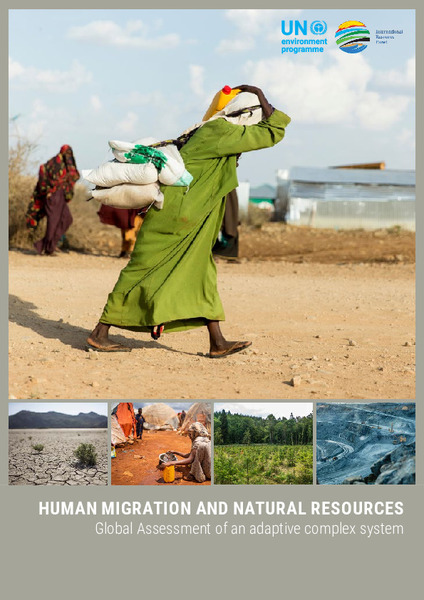| dc.contributor | Industry and Economy Division | en_US |
| dc.contributor | International Resource Panel | en_US |
| dc.contributor.author | United Nations Environment Programme | en_US |
| dc.contributor.author | International Resource Panel | en_US |
| dc.contributor.other | Ali, Saleem H. | en_US |
| dc.contributor.other | Kniveton, Dominic | en_US |
| dc.contributor.other | Djalante, Riyanti | en_US |
| dc.coverage.spatial | Global | en_US |
| dc.coverage.spatial | Philippines | en_US |
| dc.coverage.spatial | Bangladesh | en_US |
| dc.coverage.spatial | Philippines | en_US |
| dc.date.accessioned | 2023-06-06T06:26:14Z | |
| dc.date.available | 2023-06-06T06:26:14Z | |
| dc.date.issued | 2023-06 | |
| dc.identifier.isbn | 978-92-807-4028-8 | en_US |
| dc.identifier.other | DTI/2526/PA | en_US |
| dc.identifier.uri | https://wedocs.unep.org/20.500.11822/42636 | |
| dc.description | The report uses a hybrid, interdisciplinary approach based on a range of methods and varied data sources, with a view to producing a significant and globally relevant assessment of the relationship between resource management and migration patterns. It asks questions about how resource use fits into prevailing narratives and trends observed around climate
and migration, such as climate related disaster displacement and trapped populations. The aim is to generate debate and further analysis about how to address significant contemporary and near-future concerns on the distribution, use and degradation of
resources and their relationship to migration patterns. The document can also open up discussions about potential entry points for policy improvement and development in terms of environmentally influenced mobility covered in the report. | en_US |
| dc.format | pdf | en_US |
| dc.language | English | en_US |
| dc.publisher | United Nations Environment Programme | en_US |
| dc.rights | Public | en_US |
| dc.subject | migration | en_US |
| dc.subject | natural resource | en_US |
| dc.subject | displaced persons | en_US |
| dc.subject | environmental degradation | en_US |
| dc.subject | climate change | en_US |
| dc.subject | social mobility | en_US |
| dc.subject | migrant | en_US |
| dc.subject | climate | en_US |
| dc.subject | Africa | en_US |
| dc.subject | statistical analysis | en_US |
| dc.subject | Bangladesh | en_US |
| dc.subject | Philippines | en_US |
| dc.subject | conflict | en_US |
| dc.subject | policy | en_US |
| dc.title | Human Migration and Natural Resources: Global assessment of an adaptive complex system | en_US |
| dc.type | Publications | en_US |
| dc.type | Reports, Books and Booklets | en_US |
| wd.topics | Climate Action | en_US |
| wd.topics | Nature Action | en_US |
| wd.topics | Science-Policy | en_US |
| dc.relation.TableOfContents | Natural Resources, displacement and migration | en_US |
| dc.relation.TableOfContents | Key messages: Mapping displacement, migration and natural resource use | en_US |
| dc.relation.TableOfContents | Key messages: Climate, natural resources and mobility: statistical analysis | en_US |
| dc.relation.TableOfContents | Key messages: Systems analysis of resources and (im)mobility | en_US |
| dc.relation.TableOfContents | Key messages: Resource-human mobility nexus: policy options | en_US |
| wd.identifier.doi | https://doi.org/10.59117/20.500.11822/42636 | |


